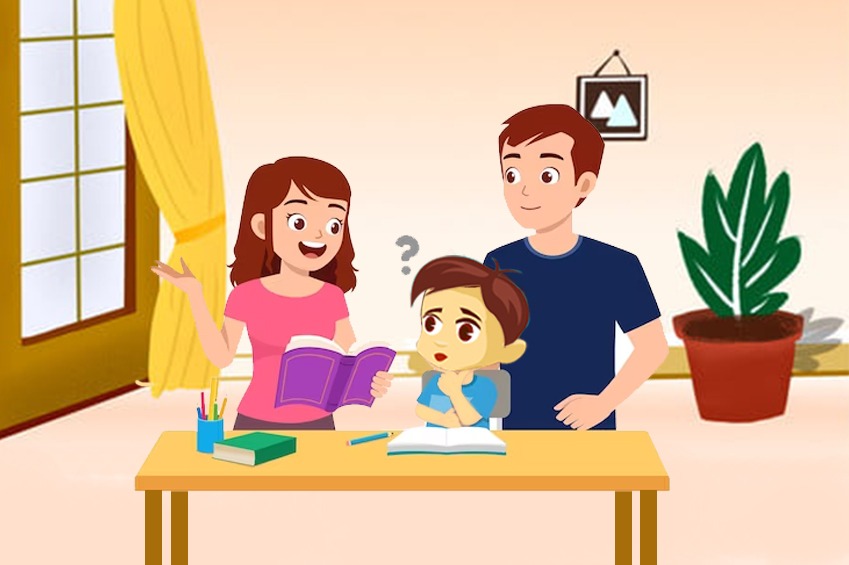
Every Parenting Situation is Unique

While children might go to school or play together, they perceive things differently from each other. A common educational curriculum aims to standardise and thereafter rank or rate children thereby trying to shape them in one mould, while trying to identify the distinctiveness in them.However, a school can do only that much.
A class teacher or subject teacher can share positive points and highlight concerns during the parent teachers meetings, but it is on the parents to act on it as the teachers only see a part of the child while in school. The parent is the only one who has a holistic view of the child. Parents know how the child interacts while in school, at home, with friends and when alone.
The responsibility of helping the child reach full potential after getting inputs from multiple perspectives is on the parent. At the same time, every child being unique a parent must have the ability to identify the edge and carefully honed to perfection.The responsibility of the parents increase multi-fold given this context.
The standard guidance on how to handle children never works as the environment at home is different for every child. Keeping cognizance of this reality, the task of parents is to bring out the best in their child, while everything around is trying to measure their uniqueness on a preset scale.
This is best done by parents by developing the child behaviourally, identifying the areas of interest of the child, guiding them in a direction that sharpens their ability, and then leaving it to the experts to help the child reach full potential through a combination of in-depth knowledge and hard work.
Consider the situation of Sharada (name changed for confidentiality). While she was very young she was left with her grandparents in the big city. Being a job that required frequent transfer of location, parents thought that child would unnecessarily suffer due to lack of proper schooling. One night when they called, they heard Sharada crying. On enquiring they were told that she had fever and diarrhoea and would be taken the next morning to the Ayurveda doctor.
Sharada’s parents go very anxious and requested the grand parents to take her to the allopathic hospital nearby. Infact Sharada’s father’s friend was a paediatrician there. However the grand parents’ were adamant. They said that they did not believe in allopathic medicine and would not administer it to their children or grandchildren.
A series of such differences kept cropping up over time and Sharada’s mother then relocated to the big city and took charge of her children’s well-being, while the father kept travelling as per the requirements of the job. The relationship soured between Sharadas mother and grandmother because of the two different routes being adopted by two individuals while the destination was the well-being of the child in any case.
It is important for the parents to be understanding else such situations create a ripple effect and serious differences crop up. And for Sharada, she just wondered if Ayurvedic medicines were indeed better than Allopathic medicines. This difference in perspectives comes due to uniqueness in the way parents influence their child with their beliefs and behaviours.
At Yancha, expert guides provide the much needed inputs to parents to carry out the behavioural development of the children. While schools focus on the academic development based on prescribed curriculum, behavioural development and building on the areas of interest of the child is best carried out by the parents.
The fundamental reason for children to achieve far beyond expectations is the behavioural development carried out by the parents in the formative years of their development.
It is important to realize that every situation requires an interplay of perspectives which makes parenting both fun-filled and challenging at the same time.
SUBMIT COMMENTS
Blog Comments
-
No comment found.
Recent Posts
- Every Parenting Situation is Unique
- How to guide your Child to overcome fear and associated behaviour
- Decision Making - A Feeling
- Values and Compassion – YOUR Child Observes and Learns
- Reprimand - is it right thing to do?
- Is Availability of Resources the Differentiator for Success?
- How to help children to achieve their Full Potential
- Discover Ways to Stay Focused and Avoid Distractions
- Parents – Owner or Custodian of the Child
- My child is well behaved and obdedient..Why is that not enough?
- Connect with Your Child but Understand why NOT to Overdo it
- How to Actively Listen & Respond to your Child
- The Importance of Humility in Parenting
- Teaching Positive Discipline to a Child
- Positive Ways to React When Your Child Does not seem to 'Obey'
